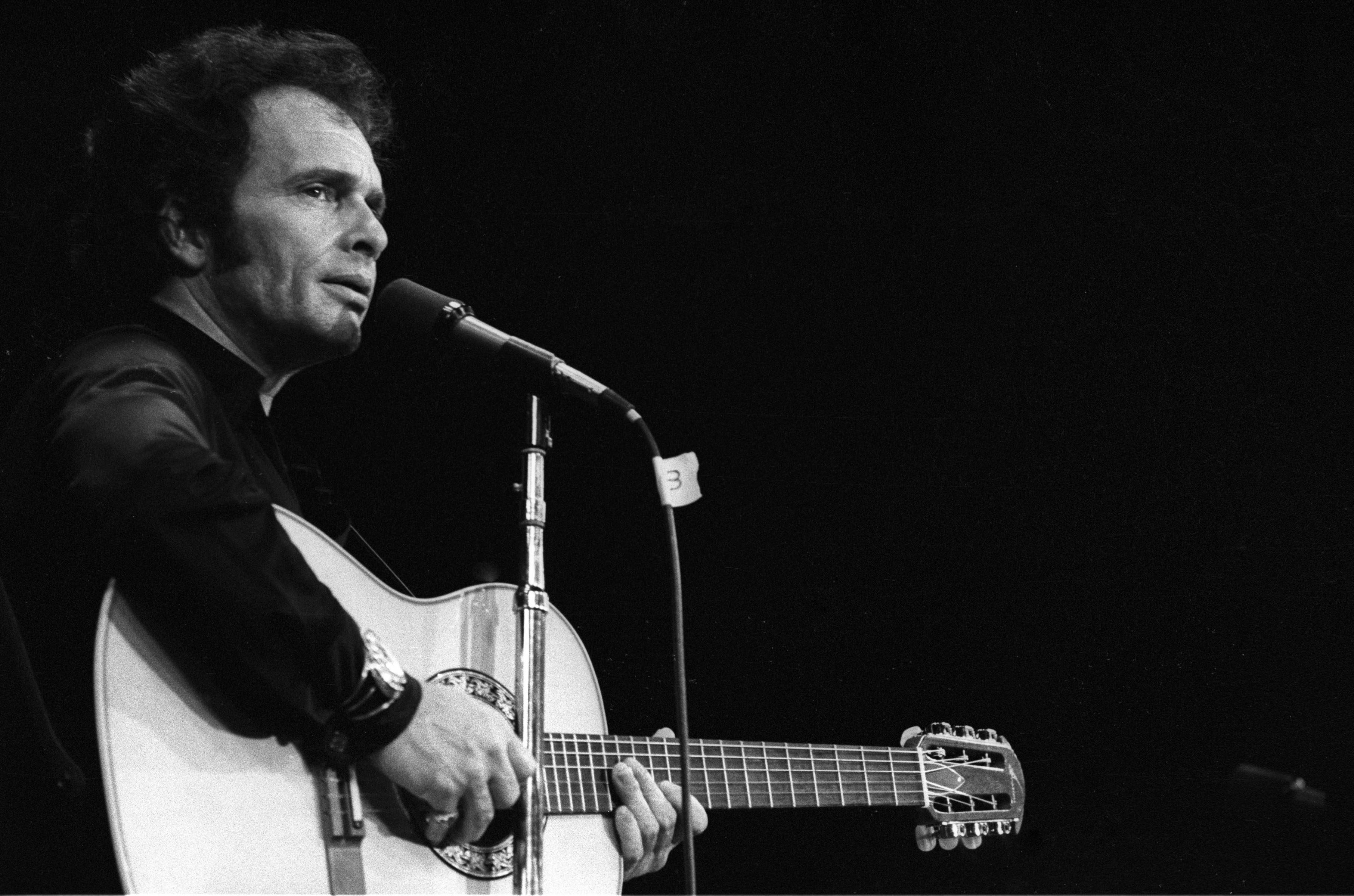Merle Haggard, the country music legend whose influence extended far beyond the borders of his chosen genre, has passed away today following a prolonged bout of ill health. CNN reports that complications stemming from pneumonia were the cause of Haggard’s death. Today was his seventy-ninth birthday.
Haggard was raised in Bakersfield, California, the son of Oklahoma migrants. He developed a reckless streak following his father’s death and found himself in San Quentin Prison, where a concert put on by Johnny Cash convinced him to turn his life around. “He had the right attitude,” Haggard said. “He chewed gum, looked arrogant, and flipped the bird to the guards—he did everything we wanted to do.”
Upon his release, Haggard dedicated himself to music and work, with the latter blue-collar jobs providing him material for the former. The Bakersfield scene in which he found himself (which also included Buck Owens and Wynn Stewart) nurtured Haggard’s love of Lefty Frizzell and Bob Wills’s Western swing; years later, he would appear as lead vocalist on Wills’ farewell album, For the Last Time, and would also record the spectacularly titled A Tribute to the Best Damn Fiddle Player in the World (Or, My Salute to Bob Wills).
But Haggard’s success was not built on the backs of others. He would ultimately be responsible for forty number-one hits. While the songs that brightened his star to the world outside of country music were rowdy—“Okie from Muskogee,” “Mama Tried,” and “Ramblin’ Fever,” among the many—Haggard knew his way around a tender melody; “Silver Wings” and “Today I Started Loving You Again” are not only among Haggard’s greatest songs, but those of American pop music in general.
Still, it was his rougher side that made Haggard’s celebrity. When Cash had Haggard on his variety show, the Man in Black advised him to embrace his renegade past: his fans would identify with him, and he’d be bulletproof in the face of the tabloids. “I told him, ‘Being an ex-convict is the most shameful thing,’” Haggard told Rolling Stone. “‘It’s against the grain to talk about it.’ But he was right—it set a fire under me that hadn’t been there before.”
That fire was also sparked in part by Haggard’s perpetual frustration with the state of the Union. “Okie from Muskogee,” which was released six weeks after Woodstock, finds him flaunting his decidedly non-aquariun upbringing and declaring himself proud to be from “a place where even squares can have a ball.” But the song has remained a strange case: many critics maintain that the song is parodic in nature, that Haggard is picking at Middle America—a contention that Haggard occasionally perpetuated himself. Such coyness, and the fire with which Haggard delivered the song, made it equally popular among both wearers of leather boots and wearers of beads and Roman sandals (as the song puts it).
He provided a stark contrast a year later with his 1970 single “The Fightin’ Side of Me,” in which Haggard bemoaned Vietnam war protestors in no uncertain terms and introduced the phrase “If you don’t love it, leave it” into the lexicon. Again, though, his political persuasions were never easy to pin down. He famously penned a song in support of Hillary Clinton’s 2008 presidential campaign (sample lyrics: “Changes need to be large / Something like a big switch of gender / Let’s put a woman in charge”), and in a 2010 Rolling Stone profile he had kind words for President Obama shortly after meeting him at that year’s Kennedy Center Honors, where he was awarded for his artistic achievement.
All told, Haggard was awarded three Grammys (including a 1999 induction into the Grammy Hall of Fame for “Mama Tried”), six CMA awards, nineteen ACM awards (including the 2014 Crystal Milestone Award), and he is a member of the Country Music Hall of Fame and the Nashville Songwriters Hall of Fame.
Haggard would continue to tour and record late in life. He released his final solo album, Working in Tennessee, in 2011, and last summer he released the collaborative Django & Jimmie with longtime compatriot Willie Nelson. Though illness recently forced him off of the road, he had dates scheduled for later this month.
Below, watch Merle play the mournful “If I Could Only Fly” in 1986.









